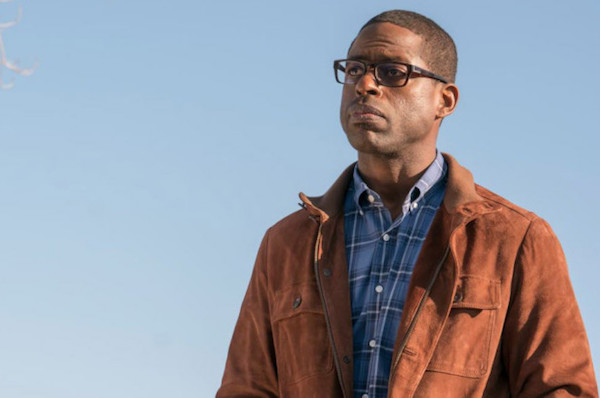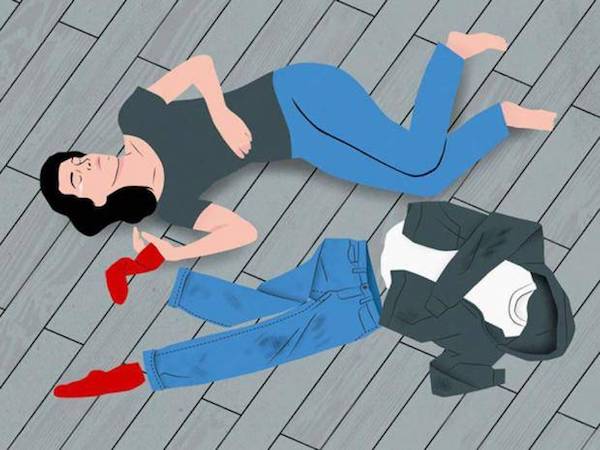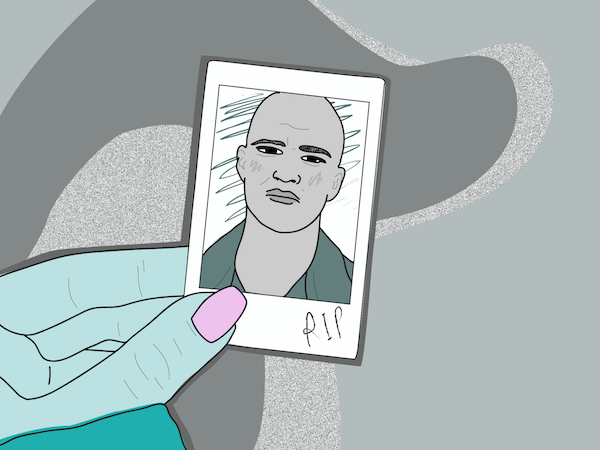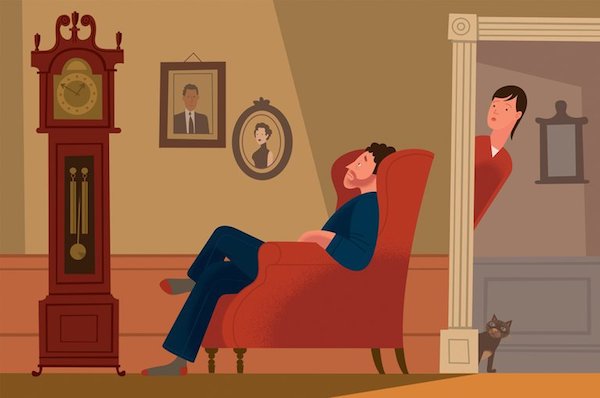
[S]he seemed asleep in the quiet, softly lit room in the hospice section of Advocate Christ Medical Center in Oak Lawn.
Her face was soft, relaxed, almost peaceful. Her breathing was steady. I didn’t know if she could hear me, but I struggled with what to say anyway.
The visit with my mother’s best friend, who lie dying, immediately took me back to the days before my mother’s death five years earlier, when the “right” words just wouldn’t seem to come, even though I had so many hours to formulate them.
Of all the phrases in the universe, the ones that we need in times of grief are often the most elusive.
What do you say to someone who is dying?
And what do you say afterward to those devastated by a loss?
How to navigate grief, whether it’s our own or that of someone close to us, seems a great mystery even to people whose college major was communication.
So this column will attempt to shed some light, to offer some advice and to serve as a virtual hug to those in need.
Because at some point in our lives all of us will be there, facing death, whether its our own or that of someone we love.
Joseph Masbaum has been bereavement coordinator for Advocate Hospice South for 13 years. He has comforted thousands of people as they were dying or through the grief process.
A person’s final moments, he said, are a good time to review. “Encourage them to feel good about their life.”
Regardless of how rich or exciting a person’s life may have been, Masbaum said, “When someone is dying, what’s most important to them is relationships. So talk about the people in their lives. Remind them that their family loves them. Just be reaffirming.”
It’s also important to not fear silence, he said.
While many people on their deathbed desperately want to be comforted by loved ones, some “don’t want to talk about it, some are bitter, some are in denial, some are avoiding it,” he said. Often, it can be hard to know what to say.
In those cases, he said, “I ask them what the doctor has told them about their situation. It gives you a start to know where they are.
“Ask them if they’re comfortable talking about themselves, about their life, their family,” he added.
“Some people avoid the dying because they’re afraid and don’t know what to say. So many of us are uncomfortable with silence — we fill it up with words,” he said. But when you know somebody is dying and are at a loss for words, he added, “Just be silent or say, ‘I don’t know what to say but I’m here because I care.'”
Steve Hoerger, pastor of Salem United Church of Christ in Oak Lawn, is a hospice chaplain. He said finding the right words can sometimes be tough “even for me who deals with terminal people daily.
“I think you let them take the lead and then be comfortable with wherever they go so they know they can open up,” he said.
“I rarely ask direct questions about how they’re handling the dying process. I ask questions about their life and then about their diagnosis and how it’s affecting them. This gives them the opportunity to say more about what they’re struggling with, or not. I’m comfortable with either,” Hoerger said.
Sometimes, he said, conversation can be shocking, but he remains nonjudgmental.
After the loss
Masbaum said, following the death of a loved one, it is common and normal to feel a multitude of emotions: shock, numbness, guilt, regret, sadness, anger.
It is most important, he added, to understand “there is nothing wrong with you” for feeling these emotions.
“So be careful to be very kind to yourself and avoid any negative self-talk,” he said.
Instead, “tell yourself, ‘I am doing the best I can. There’s nothing wrong with me, It’s the grief,'” he said.
Masbaum said when he calls to check on people following the death of a loved one, “They often tell me they feel lost, they feel empty, because their whole life has changed, especially if that person was one of their go-to people — someone they lived with, loved, saw everyday.”
Masbaum recalled a 12-year-old girl who was devastated by the loss of her grandfather because he was someone who really listened to her, someone who had been a key person in her life.
He recalled phoning one woman whose mother had died. “It was 1 in the afternoon or so. She said, ‘I’m in this chair all morning. Right now, I’m still in this chair. I just have no energy.’ So I normalized her feelings. I told her it’s normal to have fatigue and no energy,” he said.
“I only talked to her for about a minute but two hours later I was thinking of her and I called her back. This time, she was excited. She said, ‘I just came in from the yard. I was working in the garden for an hour.’ Prior to that, she was sitting in the chair, admonishing herself for being lazy. But when I told her that was the grief, and that it is normal, it really helped her,” he said.
Masbaum said he encourages people to talk about their loved ones, their feelings and about themselves.
“A lot of times we want people to be fixed — we think they should be getting over their sorrow — but (humans) need to process feelings,” he said. “Each person is unique in their grief and in how long it will take to adjust. Grief is a process that cannot be rushed. There is great wisdom in focusing and coping one day at a time as best you can.”
He also encourages those who are grieving to spend time with people who understand their grief, such as a support group or counselor or another person who also has experienced loss.
“Journaling your feelings is most helpful for many. Some bereaved who journal find it comforting to write a letter to their loved one each evening,” Masbaum said.
He also encourages people to talk with their deceased loved one.
“Some people may say ‘you’re crazy’ for doing that but for 13 years, of the thousands of people I’ve talked to, I’ve only met about four people who never talk to their deceased loved one,” he said. Just saying, “I love you, Mom, I miss you” can be cathartic, he said.
“There’s a gentleman I met in Oak lawn. He told me a story about missing his wife. In the end when he got up to go, I asked him if he ever talked to his wife. He stumbled and said, ‘Maybe a little, I just don’t know how I feel about that.’ I told him what I tell almost all the people I counsel, that it’s an individual thing but that it’s very common, very normal,” Masbaum recalled.
“The next week he came in, I asked how he was doing. He said, ‘I’m doing much better since you told me I can talk to my wife. I talk to her in the garden where we used to work together,'” he said.
Many people, Masbaum said, keep “transitional objects” such as jewelry or items that belonged to a loved one. Many wear a piece of their loved one’s clothing, such as their sweatshirt or jacket, to help them feel a connection.
Also, he said, maintaining a daily routine with some movement or exercise is especially important for those who are grieving, even if it is just a daily walk around the block.
The rituals of death
Peggy Schaffer and Brian Fitzpatrick, funeral directors at Brady-Gill Funeral Home and Cremation Services in Tinley Park, have had funeral attendees reveal that they don’t know what to say at a visitation or interment, particularly if the deceased was taken tragically or is a child.
“The best thing to say is, ‘I’m sorry’,” Schaffer said. “Don’t say, ‘It’s good you have other children’ or ‘You’re young enough to have more.'”
If words escape you, she said, remember actions often speak louder.
“It means more to someone (who is grieving) that you walked in, acknowledging that their mother, father, brother, sister, child lived and touched their lives. You don’t have to say anything,” Schaffer said. “The fact that you took time out of your day to be there says it all.”
Sometimes, she added, a meal a week or so after the funeral reminds the loved one that they haven’t been forgotten.
“Pick up the phone and share a memory,” she said. “It doesn’t have to be a long conversation.”
When it comes to attending wakes and funerals, Fitzpatrick said, there are no “rules” about how long to stay or what to bring.
People still send flowers, Schaffer added, but over the last 25 years, services have become shorter, more streamlined, often with both visitation and funeral service on the same day, and the “gift” of Catholic Mass cards, signifying a future Mass will be said on behalf of the deceased, has dropped off considerably.
“We’re seeing a lot more cremation, with a memorial that includes the urn and lots of pictures,” she said. “More people see the urn as not as traumatic as the (deceased’s) body.”
Picture boards and videos can be conversation starters for those who struggle with what to say, she said.
Schaffer suggested letting a sympathy card or a message left on the deceased’s page on the funeral home’s website do the talking if you cannot.
“Don’t fumble over words,” she said. “If you can’t think of what to say, a hug or a touch will do.”
Finding my words
Standing at the bedside of my mother’s best friend, I decided to say what I would want to hear if the tables were turned.
I told her that we loved her. I thanked her for being a good person in our lives, for being helpful and kind and funny and constant. I thanked her for all of the rides she’d given me to work and school when I was a kid. I thanked her for letting my siblings and me have sleepovers at her house and for coming to my college graduation and for all the times she made us laugh and all the times she brought the best kolachkes in the world to my family parties.
I thanked her for believing in my dreams as a child and for being the biggest fan of my column when I became an adult, even if she did joke that it was only “to keep her nose in all of my business.”
I hugged her, kissed her forehead, rubbed her arm, held her hand and then I thanked her for being a good friend to my mother because that made her a good friend to us.
Although she moved her mouth and raised her eyebrows several times, I’m not sure if she heard or understood. Because I will never know that she didn’t, I am choosing to believe that she did.
Complete Article ↪HERE↩!








